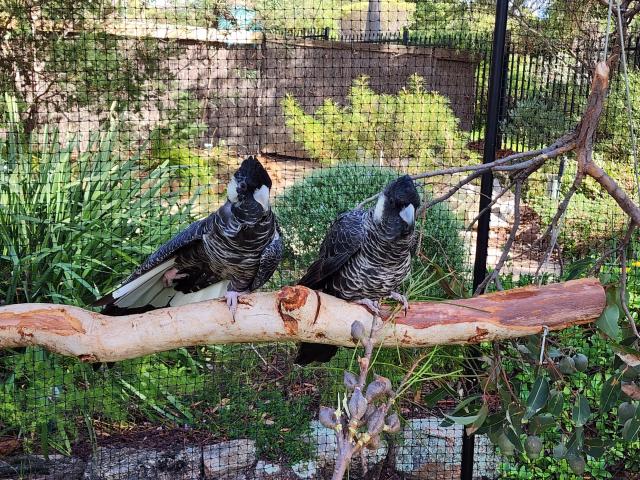The Shire of Serpentine Jarrahdale takes action to save endangered black cockatoos.
Ngoolarks, or Carnaby cockatoos, have connected Noongar families for thousands of years, but we are in danger of losing them forever with human pressures.
The Shire of Serpentine Jarrahdale is proud to partner with Murdoch University, with support from Lotterywest, to launch Keep Carnaby’s Flying – Ngoolarks Forever. This community empowerment program will see researchers, Aboriginal organisations, other local governments, and conservation groups take action together to protect and preserve endangered birds.
In conjunction with Murdoch’s Harry Butler Institute and Ngank Yira Institute for Change, the project has also partnered with the Winjan Bindjareb Boodja Rangers, Birdlife Australia, Perth NRM, South East Regional Centre for Urban Landcare (SERCUL), Peel-Harvey Catchment Council, Landcare Serpentine-Jarrahdale, Urban Bushland Council of WA, Kaarakin Black Cockatoo Conservation Centre, and Curtin University’s Trace and Environmental DNA Laboratory.
The project also collaborates with Perth Zoo, the Department of Biodiversity, Conservation and Attractions, and the Town of Victoria Park.
By developing Conservation Action Plans with four local governments each year, the Keep Carnaby’s Flying – Ngoolarks Forever project will deliver a range of on-ground activities, including revegetation, protection of foraging habitat, roosts and vegetation corridors, and the installation of water drinking stations.
The first four councils to engage in the project are the City of Cockburn, the City of Melville, the Shire of Wanneroo, and the Shire of Serpentine-Jarrahdale.
Working with four local governments each year, the project will support community-led on-ground activities, including revegetation of black cockatoo habitats and installation of water drinking stations, while developing black cockatoo Conservation Action Plans for councils to safeguard their black cockatoo flocks in the long term.
One of the project’s activities involves installing signs at native plant nurseries around Perth to encourage gardeners to plant cockatoo-friendly native plant species such as banksia, hakea, and marri, and non-native, high-energy macadamia trees, which can provide food for Ngoolarks in the short-term as native plants establish.
Nursery staff will also advise gardeners, and the project’s website, keepcarnabysflying.org.au, has detailed information about what to plant and what else people can do to help keep Perth’s Carnaby’s cockatoos flying.

















